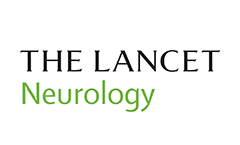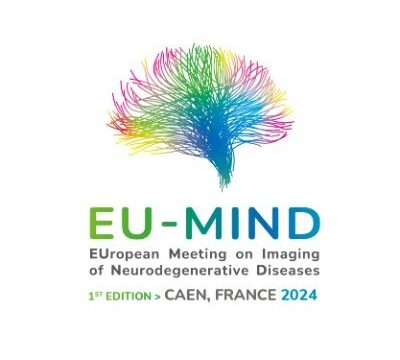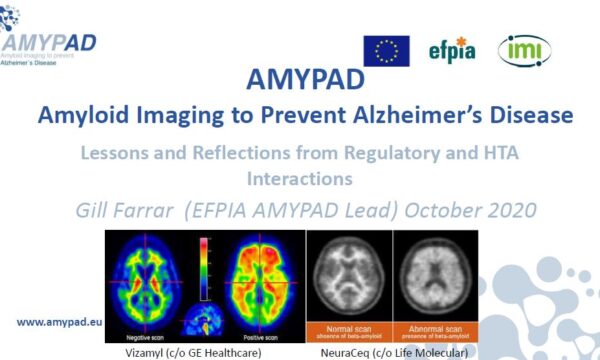Could you tell us a bit about your work and your current role on AMYPAD?
I joined AMYPAD in Summer 2021 having finished a PhD in quantitative neuroradiology at UCL (with Frederik Barkhof) and subsequently accepting a position at GE Healthcare (with Gill Farrar). With Frederik as my PhD supervisor and Gill as my new boss it was no surprise that I would be working on AMYPAD. At GE Healthcare, I am a Global Scientific Advisor working on evidence generation within the neurology care area. Within AMYPAD, I’m mostly involved in Work Packages 2 and 5, and I chair the Centiloid Working Group.
What is your overall vision?
The Centiloid Working Group’s overall aim is to facilitate the use of the Centiloid scale, and amyloid PET in general, in clinical trials and routine clinical practice. The Centiloid scale provides an “absolute” metric of amyloid burden capable of generalising quantitative thresholds across different tracers and pipeline implementations. Universal cut-off or threshold values to denote amyloid status can be applied alongside visual reads and in longitudinal multi-centre studies to facilitate inter-centre and inter-tracer comparisons. We are currently preparing a Biomarker Qualification Opinion to submit to the European Medicines Association. The end goal is to secure “Certification of the acceptability of a biomarker for a specific use in pharmaceutical research and development”, and in our case this biomarker is the Centiloid Scale.
What do you find most challenging about the project?
The most challenging aspect has been wrapping my head around the quantity and breadth of work that has occurred within AMYPAD – there’s been a staggering amount of activity over the last ~6 years. My background is also mainly in MRI/CT quantification, so transitioning to amyloid PET quantification was a steep learning curve. However, writing a state-of-the-art review helped a lot, and I owe many thanks to all my expert co-authors! See here for those interested – https://link.springer.com/article/10.1007/s00259-022-05784-y.



